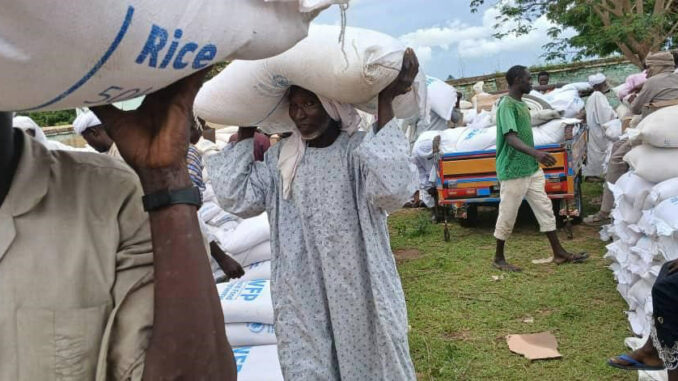
On December 4, the World Food Programme (WFP) delivered a stark message: a significant funding shortfall has left it unable to provide critical aid to 26 million people enduring drought in southern Africa and another 25.6 million battling malnutrition in the Democratic Republic of Congo (DRC).
During a press briefing in Johannesburg, Antonella d’Aprile, WFP’s Country Director for Mozambique, emphasized the growing urgency of the situation. She outlined the dire state of food insecurity in Angola, Malawi, Mozambique, Namibia, Zambia, and Zimbabwe, where prolonged drought has devastated livelihoods and strained food systems.
In Mozambique, d’Aprile described barren fields and families grappling with extreme hunger. Meanwhile, in Malawi, WFP representative Paul Turnbull reported that an El Niño-driven drought earlier this year destroyed nearly half of the maize crop. This has forced many families into such economic distress that children are being withdrawn from school to help support their households.
In Zambia, a nation often considered the “breadbasket” of southern Africa, WFP representative Cissy Kabasuuga warned of a looming food crisis, pointing to dwindling agricultural output and growing challenges in meeting food needs.
The situation in the DRC is no less critical, with malnutrition affecting one in four people. WFP representative Peter Musoko attributed the crisis to a combination of factors, including armed conflict, intercommunal violence, climate disruptions, and outbreaks of diseases like mpox, cholera, and measles. A recent report from WFP highlighted worsening conditions in provinces like Ituri, North Kivu, and South Kivu, where conflict has exacerbated food insecurity. Tanganyika province has also suffered heavily, with severe flooding compounding the crisis.
To address the mounting global hunger crisis, WFP launched an appeal in November for $16.9 billion to fund its 2025 operations. To put the figure into perspective, it’s equivalent to what the world spends on coffee in just two weeks—a powerful reminder of the scale of the challenge and the importance of collective action in saving millions of lives.
